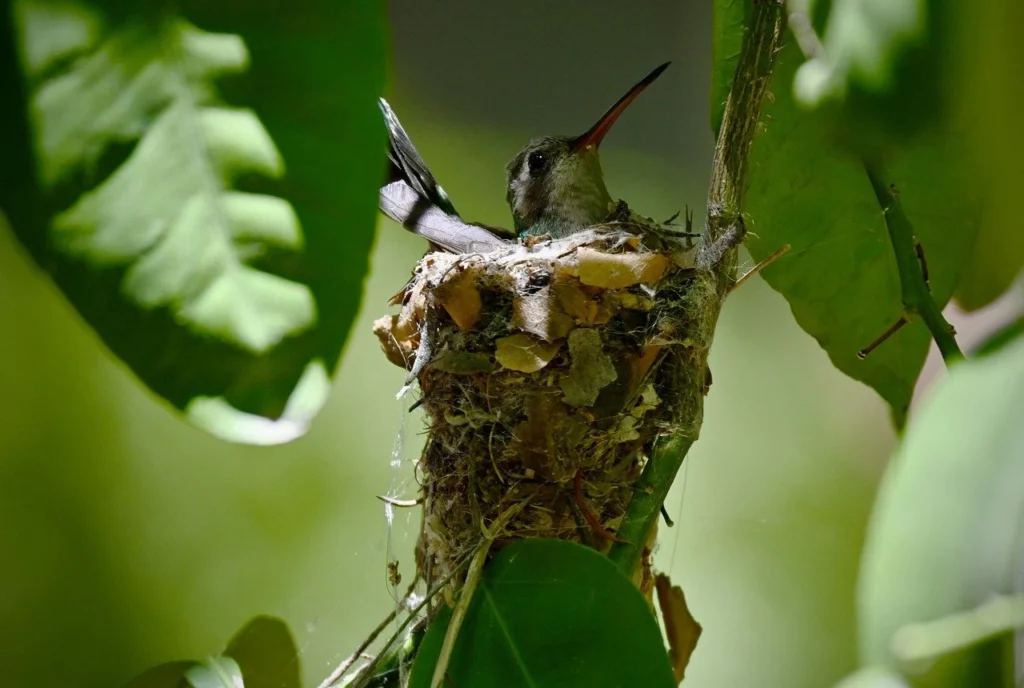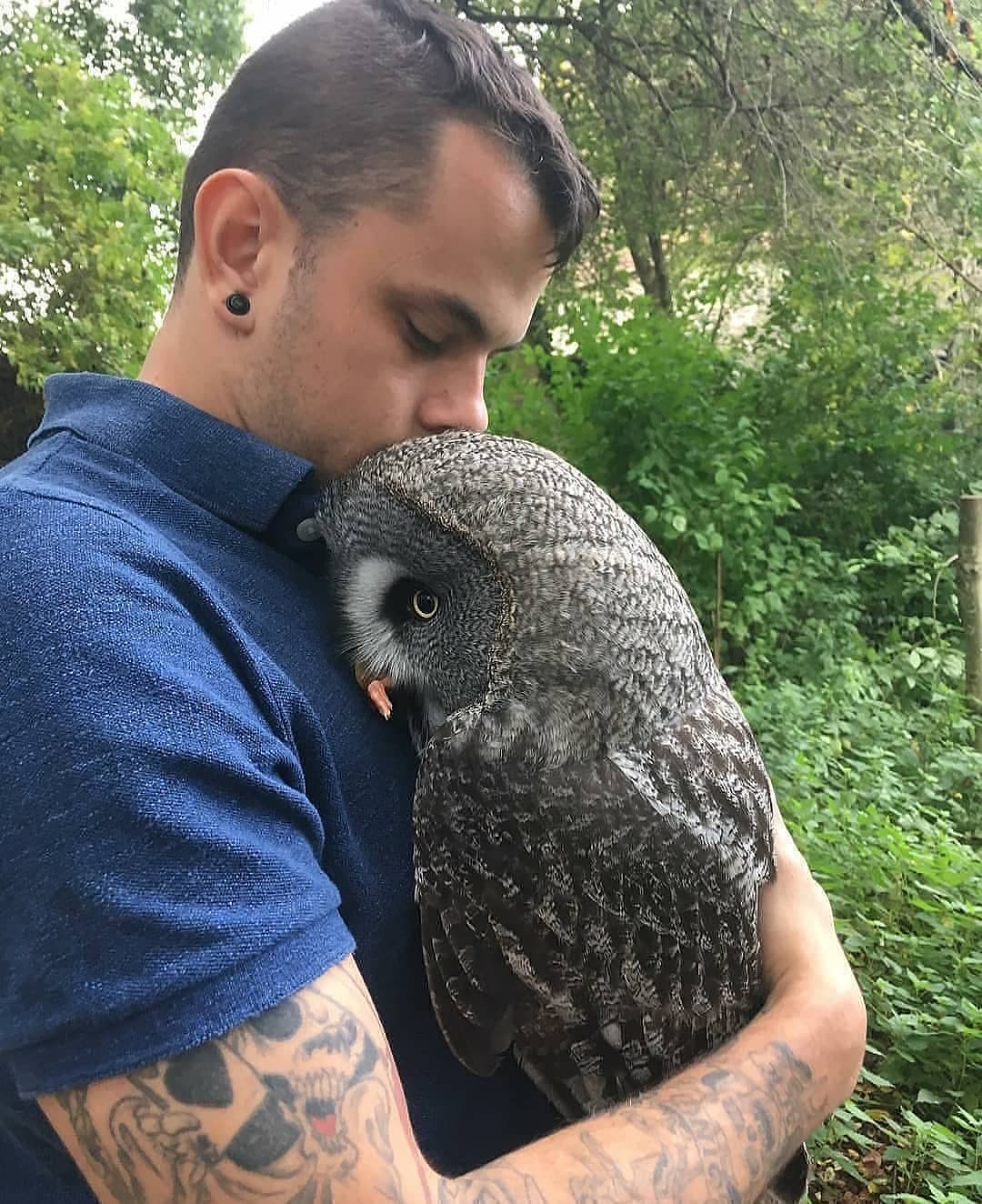Hummingbirds are one of the most hyperactive bird species that live on earth. They use so much energy during the day that they put themselves in hibernation during the night to conserve energy.
In this blog, we will discuss how often hummingbirds sleep and their sleeping habits. Let’s explore the secret behind hummingbirds’ fascinating sleeping patterns.
How Often Do Hummingbirds Sleep?
Hummingbirds are very energetic birds, and they will travel far distances for food hunting, visiting favorite places, and finding safe spots for living. Being very active, they require sleep to recharge for the next day.
Depending on many factors, a hummingbird can deep-sleep for 8-16 hours, activating a state called Torpor. Due to their tiny size, their metabolism burns very fast. To conserve energy, hummingbirds would sleep several times a day.
Hummingbird Sleeping Patterns
Hummingbirds have remarkable sleeping patterns. When they sleep they will enter a state of torpor, which helps them lower their body functions.
Hummingbirds go to sleep 30 minutes before the sun sets and wake up as soon as the sun hits their feathers. They will have their routine nap during the day as needed.
How Do Hummingbirds Sleep?

Well, hummingbirds don’t just sleep, but they enter into Torpor. Most of them are not very picky and they will sleep on branches or in their nest. They will sometimes sleep hanging upside down to lower their metabolism and survive in extreme conditions.
What Is Torpor?
Torpor is a state where body temperature reduces to up to 50%. This also allows to lower heart rate, metabolism, and other body functions. Over time, hummingbirds have developed these skills to survive when there is no food source or in harsh climates.
Importance Of Torpor For Hummingbird
Torpor is like a superpower, this allows them to conserve energy, sleep during cold nights, deal with food shortages, and prepare for migration. This unique skill helps them thrive even in the most difficult environment.
Torpor also helps them recover from muscle fatigue; being a very active and fast-paced wing-beating habit, they need to go into deep sleep to comfort their body. Torpor is like balancing; they use it to save energy and only use it when needed.
How Do Hummingbirds Prepare For Sleep?
Hummingbirds have interesting ways of sleeping preparation. Let’s look at some of them:
1. Finding shelter: Before sleep, hummingbirds look for a protected place where they can rest worry-free. They will look for places like thick tree foliage, and dense vegetation where they can cover themselves from predators. They often like to perch on tree branches for a sleeping spot.
2. Monitoring surroundings: Even though hummingbirds enter torpor, they will keep themselves alert and wake up every 20 minutes to monitor their surroundings. If they sense any threat, they will change their position or even take a short flight.
3. Adjusting body temperature: As they enter into torpor, they begin to lower their body temperature. During torpor, they can reduce the body function such as heart rate, breathing, and metabolism rate, which helps them minimize energy use.
4. Energy storage: Hummingbirds tend to eat up to 50% of their body weight before sleep, ensuring they have enough energy to survive the night and the next day.
Frequently Asked Questions
Do Hummingbirds Sleep In Groups Or Alone?
Hummingbirds are solitary creatures, and for most of their lifetime, they will live and sleep alone. Unlike some other birds, hummingbirds’ sleeping habits are quite unique.
Do Hummingbirds Nap?
Yes, they typically take naps throughout the day to conserve energy. During migration or when there is not much food supply, they will take naps as often as possible.
What Should I Do If I See A Sleeping Hummingbird?
If you somehow spot a sleeping hummingbird, keep your distance from them and don’t disturb them while sleeping. Their body is fragile and sudden interference can harm them.
What Do Hummingbirds Dream About During Their Sleep?
While the exact content of their dream remains a mystery, many people believe they dream about the activities and experiences. Like humans, hummingbirds do dream, and they have an active brain during sleep.
Can Hummingbirds Experience Sleep Disorders Such As Insomnia Or Sleep Apnea?
Sleeping is an essential part of a hummingbird’s life cycle, and they are unlikely to have any sleeping disorders. The research on this subject is still very limited.
How Do Environmental Factors, Such As Light Pollution Or Noise, Impact A Hummingbird’s Sleep Quality?
Environmental factors such as light pollution or noise can greatly impact a hummingbird’s sleep quality. These factors disturb their natural sleeping patterns.
Do Different Species Of Hummingbirds Have Varying Sleep Durations And Patterns?
Yes, although all hummingbirds enter into Torpor when they sleep, different species of them can have varying sleeping durations and patterns.
Can Hummingbirds Sleep While In Flight, Or Do They Always Need To Perch For Rest?
No, hummingbirds are not able to sleep while in flight. They will need to perch on a tree branch or twig to enter into a torpor.
Conclusion
Hummingbirds’ sleeping pattern is unique, and it’s crucial for their survival. Due to their active lifestyle, they require frequent sleep throughout the, mostly when they are in migration. Sleep is an essential part of their life, and to conserve energy when the need arises.

